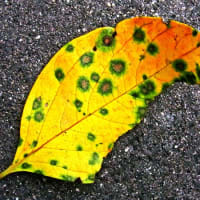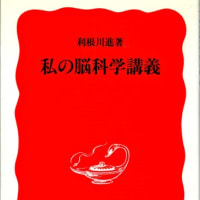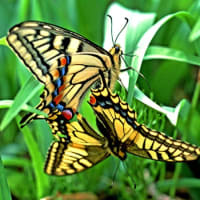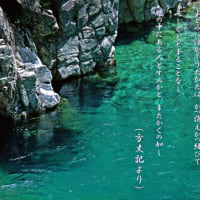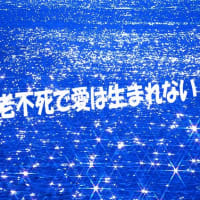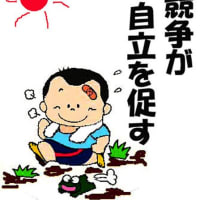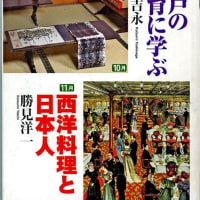通常の学習指導とファインマンのお父さんの大きなちがい
ぼくは、いままで立体授業の指導について、多くは触れてきませんでした。「環覚を育てること」については、その大きな意味とたいせつさが、子どもたちの大きな成長を考え、ブログをきちんと読んでいただいているみなさんにはよくわかっていただけたと思いますが、その指導法については、一部資料の紹介等はしましたが、あえてくわしくは触れませんでした。
それはカッコだけ猿真似をしようとする情けない教師、人としての成長や社会常識の形成等については一切考えの及ばない愚かな玉川夫妻のような教育者としての資質のない教員に、表面的な剽窃だけされては、子どもの成長や社会にとって百害あって一利もなしと考えたからです。つまらない盗用によって、成長の方向をまちがえたり、思わぬ誤解を生んでしまうのは望むところではありません。
優れた頭脳や能力は素晴らしい人間性がきちんとともなってこそ、大きな意味をもちます。その方向で指導をしてこそ教師です。心ある先生たちは、そんな思いいっぱいで日々子どもたちを育てようとしているはずです。そんな先生たちの力にこそなりたい、そう思って指導を続けています。教師の役目は犯罪を教えることではなく、それらを撲滅することであり、犯罪者を育てるのは、そうしたまがい物の教員を野にはなってしまった社会です。
教師として最も大切であるはずの、その指導前提にまで考えが至らない愚かさ、見つからなければ何でもやり放題という、まがい物サッカーで身につけた「情けないアンフェアプレー精神」で、人間としての中身を全く考えない指導では、ぼくの願いや指導は到底わかりません。
さて、今回は、少数かもしれませんが、生計の資としてではなく、そうした教育に対してあふれる情熱を持って日々過ごしていらっしゃる先生方に、指導の一端をお話しします。
ふつう自然体験や学校での観察や実験では、既にわかっている、あるいは、結果がすぐわかるものでの、結果の確認や照合に終わる場合がほとんどではないでしょうか? その過程での大きな変化やハプニングが仮にあっても、「びっくりさせるだけ」で、自らの考察するにいたるまで彼らを指導することは、あまり行われません。
つまり、いずれにしろ、教科書の学習内容の定着や記憶材料の域を出ません。自らが主体となって、「新しいことを始める」、「未知の結果に挑む」わけではありません。これが、こうした指導の限界・「おもしろさが頭打ちする原因」です。学習のおもしろさはハプニングに始まり、その解明にこそ存在します。
ここで、ファインマンのお父さんの指導例を、もう一度振り返りましょう。
ファインマンのお父さんは彼を森に連れ出し、別に美しくも特異でもない、「ふつうの鳥」のしぐさに彼の注意をひきます。「おい、あの鳥は何をしているんだ?」とたずねます。特別な鳥ではなく、森へ行けば、どこの森にでもいるような、ごく普通の鳥です。
「ふつうの親なら、何か珍しいものを探して、見つければ大騒ぎ」というのがパターンでしょうが、それによって子どもたちが覚えるものは、せいぜい「その珍しい鳥と、その鳥がいた」ということだけです。そのままでは、友だち同士の「会話の種」にはなっても、「考察」の材料ではありません。「会話の種」で、子どもの頭はよくなりません。対象についての考察や、関与の試行錯誤を繰り返して、脳は発達します。対象を観察して、考察をする。くりかえす。自分の頭を使う。積極的に考える機会を増やすことがたいせつです。
お父さんの質問に対して、鳥のそんな様子について、それまで考えもしなかったファインマンは、自分なりに、「羽をつついていた」から、飛んでいるうちに羽が乱れたので、くちばしで整えているんだ、と答えます。すると、お父さんは、「それじゃあ、飛んでいて、地上に降りた時に、もっともつつく動作が多くなるはずだな」と問いかけます。彼が出した結論に対して、自らの正誤の確認を求めるのです。
もう一度よく観察したファインマンは、地上に降りてすぐでも、しばらく地上を歩いていても、羽をつつく回数に大きな違いがないので、答えに窮します。ファインマンのお父さんは、そこから、「科学的な見方」の指導を始めるのです。
あの鳥は、かゆくてしかたがないんだ、というわけです。羽にはそのたんぱく質を餌にする小さなシラミがいるんだが、そのシラミにたかる虫もいれば、その虫にたかるバクテリアもいる。何か食うものがあれば、そこには必ず生物がいる。鳥はそのシラミのせいでかゆくなる。だから羽をつつくんだ、というわけです。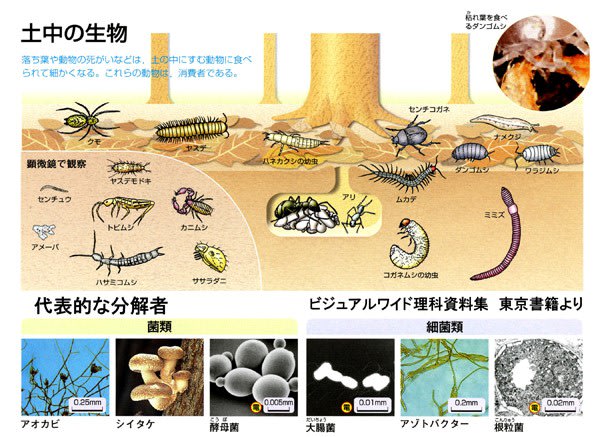
ファインマンも自ら言っていますが、お父さんのこの説の正誤は明らかではありません。しかし、自然界の初めて出会った、思いもしなかった対象から、「意外な食物連鎖」について学んだわけです。小学校や中学受験で、三角形のイラストから学ぶ食物連鎖との、子どもたちの「環覚」に訴えるであろう計り知れないイメージのちがいが想像できるでしょう。
三角形のイラストによって、食物連鎖を提示されても、おもしろさが生まれますか? 食物連鎖という、大きな枠組みに考えが及び、そのイメージが拡大しますか? その面白さのない知識を、ただ頭に入れていくのが、現在のほとんどの学習指導です。食物連鎖は、教室の机の上や、テキストの写真やイラストの中にあるのではありません。自然界、この地球上のあらゆるところで起こっている現象です。これを考えた時に、ファーブルがファーブルになったわけがわかるんではないでしょうか?それらが、ニュートンの云う、「真理の大海」のすべすべした石やきれいな貝殻に変わるのです。
ぼくの場合は、食物連鎖の指導については、各課外学習の立体授業の際の、スライド映写とテキストでさまざまに存在する食物連鎖に触れ、そのしくみを子どもたちに伝えます。子どもたちは、渓流教室や蛍狩り、でっかい鯰釣りなどで、それらの現象をリアルに体験してゆくわけです。現地ではテキストやスライドで表現しきれない、食物連鎖のさまざまなハプニングと出会いが生まれます。それが、子どもたちの学体力を刺激します。
ファインマンのお父さんのような問いかけに向かって、どんどん研究と検討を重ねることが、ぼくの次の課題です。
To teachers all over the world 2
This week, I will show you some notes of my thinking on “the sense about things of surroundings and the strong motivation for studying”, that inspired me about ten years ago.
This is the case about Richard Feynman. In nature and his daily life, his father wanted his boy to think about life forms of animals,plants and other things in nature by their observations.And so he experienced the joy of thinking about life’s wonders and questions pertaining to them,and was given a sense about things in his surroundings.I named this sense KANKAKU,it’s “環 覚”written in Chinese characters.“the環(KAN)” means “Our surroundings or environments”, and “the覚(KAKU)” means “awareness about something”.
In another example, Dr. Masukawa, Nobel Prize winning man in Japan, was interested in science taught to him by his father. This included the mechanisms and make-up of things. As examples the movement of the moon or the mechanisms of automatic doors and so on and so forth.
In almost all of great men’s and Novelists’ childhood in their biographies or in the words of their memoirs of the childhood of Novelists and other great people. We can often find such similar examples by looking a little more carefully at the biographies.
But we are apt to overlook entirely the important meanings of their words, because their biographies are usually written about their honorable achievements attained in adulthood and with little or nothing about their childhood.
Feynman’s father, with his observations on biology of plants and animals and natural phenomena together questioned his son about the mechanisms and make-up. After listening to boy’s answers, he then informed him about his misconceptions with the intention for his son to rethink his answers deeply. Those questions and answers led him to more deeply understand his surroundings.
So Feynman had developed the habit of finding out about wonders and the depth of natural phenomena.
In addition, his father prepared his child by using the Encyclopedia Britannica that had written articles by many famous leading scientists. They usually reviewed and thought about their wonders and questions together. That’s the most necessary habit to develop in order to do science and to be a good specialist.
 And in his childhood, as he studied his surroundings and making constant efforts with patience, Feynman was assured that he got valuable things and rewards, from time to time.
And in his childhood, as he studied his surroundings and making constant efforts with patience, Feynman was assured that he got valuable things and rewards, from time to time.
He got GAKUTAIRYOKU, it’s “学体力” in Chinese characters. “学” means “Learning and studying”,“体力” usually means “Power to do something”, but in this case, I mean “Strong motivations to study“.
Richard recollected like this.
That’s the way I was educated by my father, with those kind of examples and discussions: no pressure-just lovely interesting discussions. It has motivated me for the rest of my life, and makes me interested in all the sciences. (It just happens I do physics better.)
I’ve been caught, so to speak-like someone who was given something wonderful when he was a child, and he’s always looking for it again. I’m always looking, like a child, for the wonders I know I’m going to find ?maybe not every time, but every once in a while. (“What Do You Care What Other People Think? ” R. P. Feynman W.W.NORTON p16)
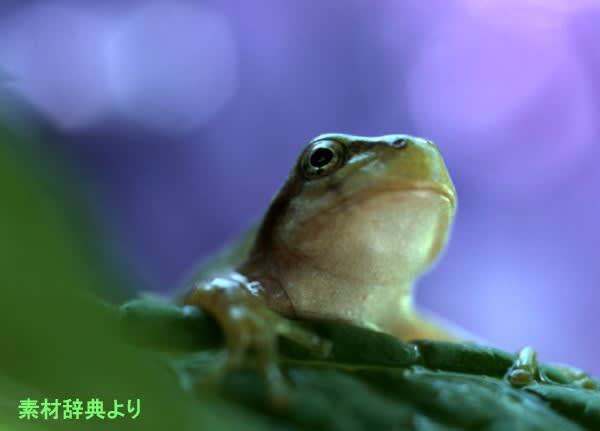
Giving priority to the joy of learning for a little child but lesser priority to study
Look back Feynman’s saying that;It has motivated me for the rest of my life, and makes me interested in all the sciences. (It just happens I do physics better.)
Reading his words “makes me interested in all the sciences”, you can understand his father’s education to be proper for small children and most important for them.
Not learning only terms and knowledge of things by textbooks only, but by thinking more about mechanisms of things in the real world. It is the way that Feynman could attain the very interest of the sciences. And it is “the joy of studying” that gave him the power to maintain the interest of science.
来週、この続きを掲載します。










